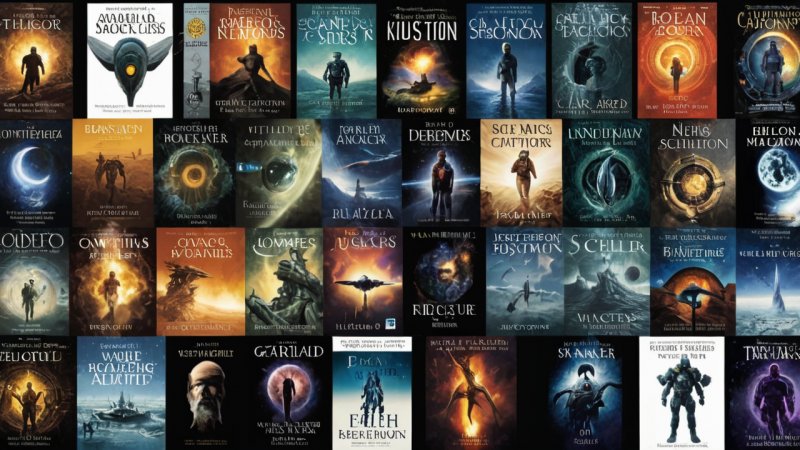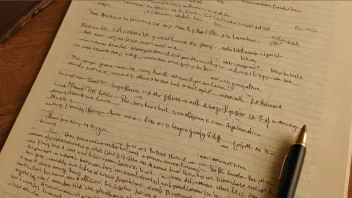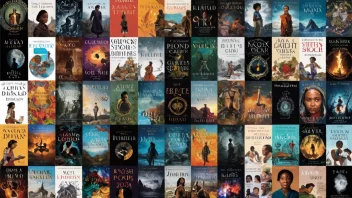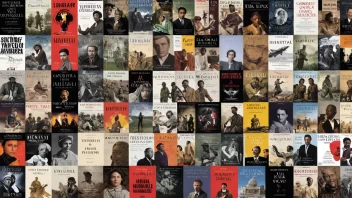Science fiction has long been a genre that challenges our perceptions of reality, pushing the boundaries of imagination and exploring concepts that can expand our understanding of the universe. From dystopian futures to advanced technologies, science fiction invites readers to think critically about societal norms, ethics, and the human condition. Here are ten essential science fiction books that promise to expand your mind and ignite your imagination.
One of the most influential works in the genre is 'Dune' by Frank Herbert. Set in a distant future, this epic novel addresses themes of power, ecology, and religion, all woven into a narrative about a desert planet and its precious resource, spice. Herbert’s intricate world-building and profound insights into politics and human nature make 'Dune' a must-read for anyone seeking to explore complex societal structures.
Another cornerstone of science fiction is Philip K. Dick’s 'Do Androids Dream of Electric Sheep?'. This thought-provoking work questions the nature of humanity and empathy in a world populated by androids. Dick’s exploration of artificial intelligence and what it means to be human has influenced countless adaptations and remains relevant in today’s discourse on technology.
Ursula K. Le Guin’s 'The Dispossessed' offers a unique perspective on anarchism and capitalism through its dual-planet setting. The novel invites readers to consider the implications of societal structures and the human desire for freedom. Le Guin’s ability to blend philosophical ideas with compelling storytelling makes this book an essential read for those pondering the future of society.
In 'Neuromancer', William Gibson not only coined the term 'cyberspace' but also set the stage for a new wave of speculative fiction that delves into the world of technology and cybernetics. This cyberpunk classic explores themes of identity and consciousness in a digital age, prompting readers to reflect on the relationship between humanity and technology.
Octavia Butler’s 'Kindred' merges science fiction with historical fiction, as it follows an African American woman who is transported back to the antebellum South. This gripping narrative explores themes of race, power, and survival, forcing readers to confront the legacies of slavery and the complexities of human relationships.
Isaac Asimov’s 'Foundation' series is a monumental work that examines the rise and fall of civilizations, drawing parallels to historical events. Asimov’s theories on psychohistory and the predictive power of mathematics encourage readers to consider the patterns of human behavior and the potential for a better future.
For a more contemporary take, 'The Three-Body Problem' by Liu Cixin offers a fascinating exploration of first contact with extraterrestrial life. This Chinese science fiction novel challenges Western notions of science and philosophy, expanding the genre’s horizons while addressing existential questions about humanity's place in the universe.
'The Left Hand of Darkness,' also by Ursula K. Le Guin, pushes readers to reconsider gender and sexuality through its portrayal of a gender-fluid society. Le Guin’s insightful narrative encourages introspection on cultural norms and the fluidity of identity, highlighting the importance of empathy and understanding.
Lastly, 'Snow Crash' by Neal Stephenson is a fast-paced adventure that covers themes of language, culture, and virtual reality. This novel anticipates the rise of the internet and explores the implications of a digital society, making it an essential read for anyone interested in the intersection of technology and humanity.
In conclusion, these ten science fiction books are not just stories; they are gateways to new ideas and perspectives. Each book challenges readers to think deeply about the world around them, encouraging a dialogue about the future of humanity, technology, and societal constructs. Embracing these works can lead to a richer understanding of our existence and inspire a greater appreciation for the power of literature.
Top 10 Science Fiction Books to Expand Your Mind
Discover ten essential science fiction books that challenge perceptions and expand your understanding of the universe.






